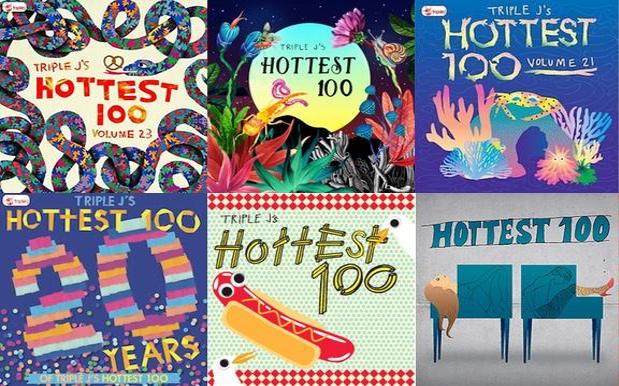
It all ended with a crash, a bang and a whimper. After we reported earlier today that Triple J management were involving themselves in some pretty serious talks around moving the ‘Hottest 100’ away from Australia Day, they announced that they won’t be doing that – yet.
Whether they chickened out because of the response, or just need a little longer to decide what day they’re putting it on – obviously New Year’s Day, guys, let’s be real here – it’s obvious that this debate won’t end now. Based on the responses we got on the street, this is still something people are passionate about.
So obviously this discussion is going to kick up again, and maybe sooner than we think. What will an Australia Day without the ‘Hottest 100’ look like?
For Gen Y, the countdown is a quintessential part of Australia Day. In fact, kicking back around the pool sinking longies and wearing one of those objectively shitty Daily Telegraph bucket hats while someone blasts Triple J through a shitty Bluetooth speaker is probably one of the more ‘authentic’ January 26th experiences in 2016.
There’s even been a kind of conscious decoupling on the part of young, progressive Australians, who dismiss the nationalist connotations of Australia Day in favour of openly calling it the ‘Hottest 100 Day’, or something similar. So embedded is the world’s greatest music poll into January 26 that celebrations among younger Aussies tend to centre it way above and beyond its place as a national holiday. For them, it’s a public holiday where you listen to tunes with mates, and not a whole lot more.
Indigenous Australians are obviously beyond sick of communicating the fact that the specific date of January 26 is a singularly traumatic day which conjures remembrances of invasion, colonialism and the continuing violence and deprivation perpetrated against them. Whether its called Invasion Day or Survival Day, the debate around the date intensifies every year, and it feels like there’s increasingly more of a national conversation around changing the date than commemorating the current one, anyway.
Despite that, there’s little appetite for a change among the broader population. Knocking the Hottest 100 from Australia Day isn’t going to change the debate overnight.
What will Australia Day look like without the ‘Hottest 100’? Triple J would be free to pursue whatever musical programming they wanted it its place, obviously – if they wanted to make a statement by highlighting indigenous music, they very well could do so. And look, it’ll just mean that for that specific period of 24 hours, you won’t whinge about the countdown order.
Without the Hottest 100, Australia Day as it exists today will be a far droller affair, and would lose the connection it has with Australia’s youth – who are already much less connected to January 26th as a date than older Australians. What will it look like for the younger Aussies who aren’t crash hot on the implications, but have still awkwardly celebrated January 26th regardless?
Many of you have probably had this exact thought process: what mental gymnastics do I need to do to justify that I’m cracking tinnies around the inflatable pool on a day that I’m not particularly keen on celebrating otherwise? The claim that celebrating the Hottest 100 on January 26 is somehow subversive and overshadows Australia Day doesn’t quite cut mustard. Without the Hottest 100, it removes the single reason I had left to celebrate it as it currently exists.
It will change the way Gen Y approaches January 26. There’s good reason Indigenous artists like Briggs are speaking out about changing the date of the Hottest 100 – it’s not just a symbolic shift or a nicety.
Talking at BIGSOUND this year, Briggsy said that it’d be a good way of showing solidarity – though there’d still be a lot of work to do to address the root causes:
That’s solidarity right there, for something that would be right… would be the right thing to do. That’s a conversation that we should all be having with why we are celebrating that day. [But] we can address the symptoms every day of the week, but until we change the idea and the attitudes of what’s this perceived ‘Australian way’, then we’re not going to be moving a whole lot forward.
This isn’t a matter of changing public opinion overnight. But as we consciously disconnect more and more relevant cultural events from Australia Day, it becomes less and less relevant to the community over time, and more and more people are aware of the discomfort people have celebrating it, it’s ultimately inevitable that the attitude to January 26 will change too.
By nature of the fact that baby boomers are pretty unlikely to agitate for change while they’ve got their fingers on the levers of power, this is probably something that’ll fall on Gen Y. For some of them, Australia Day will be the same it’s ever been – but for many, this’ll be the end of what makes January 26 significant.
Ultimately there should be a date to celebrate all elements of Australian culture and achievement of the last 45,000 years – but i think the uncoupling will make a stronger case for younger Australians to no longer need it to happen on the 26th of January.
Photo: Triple J.



